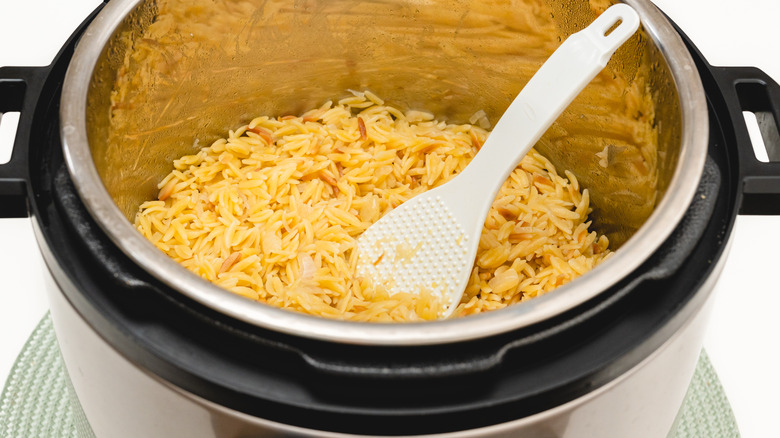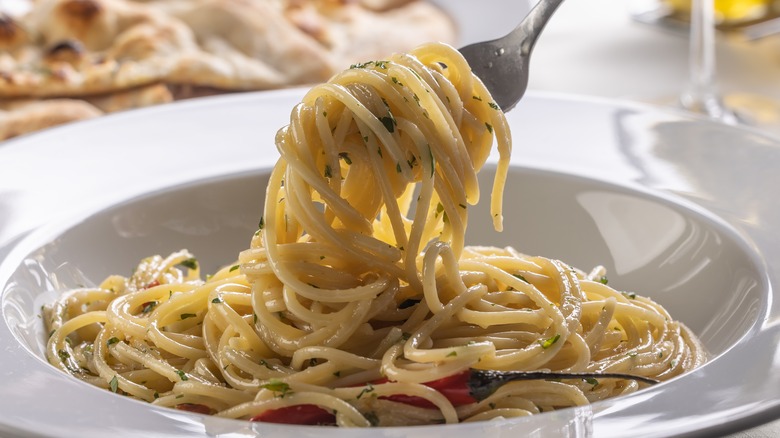Yes, You Can Cook Pasta In Your Rice Cooker
A rice cooker isn't just for rice. You can cook pasta to perfection in a rice cooker, and by tossing in a few ingredients, you can have a complete one-pot meal. Cooking pasta in a rice cooker is relatively easy, but it's not as hands-off as cooking rice. A rice cooker uses both heat and moisture to produce perfectly cooked white rice in about 20 to 30 minutes. Pasta takes between 10 to 40 minutes, but you'll need to check it often to make sure it doesn't overcook. On the plus side, you won't need to heat a pot of water on the stove, nor will you have to drain the pasta since it absorbs all the liquid.
One key difference to cooking pasta in a rice cooker is the pasta-to-water ratio. The rice-to-water ratio is one cup rice to one cup water. The pasta-to-water ratio, however, is 2 ounces pasta to 1-1/2 cups water. A little less water will make al dente pasta, and a little more water will make a softer pasta. Using this formula, to cook a pound (16 ounces) of a shaped pasta like fusilli, you'll need 12 cups of water. Pasta will double in size when cooked, so a pound of shaped pasta will make 32 ounces or 4 cups of cooked pasta. Spaghetti and linguine make about 2 cups. Rice cookers are available in different sizes, so check your rice cooker's capacity to determine how much pasta you can cook.
Step-by-step method to cook pasta in a rice cooker
For a basic pasta recipe, the first step will be to measure precisely the amounts of pasta and water. You can use any pasta, but if you want to cook spaghetti, it's recommended that you break it in half. If you just want a plain pasta that you'll pour a sauce over later, then use plain water. Alternatively, you could substitute chicken or vegetable broth for the water for a seasoned pasta. Lay the pasta in the bottom of the rice cooker, and pour the water (or broth) on top. Add a teaspoon of vegetable oil, which will prevent the pasta from foaming. You could season the water with salt, but go gentle, since the pasta will absorb it and could end up too salty, especially if you're using broth that's not low-sodium.
Turn on the rice cooker for its regular white-rice setting, stir the pasta a few times, and when the cooker switches to "keep warm," check to see if the pasta is done to your liking. If the pasta isn't quite ready, add a little more water, and put it on the cook cycle again. Keep checking the pasta until it's done. Another little wonder that the rice cooker can perform is making a killer mac and cheese. Experiment by adding marinara or other pasta sauce, and you may never go back to cooking pasta the traditional way.

